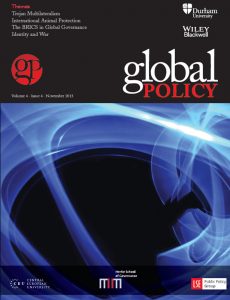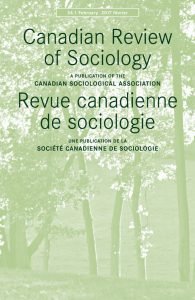Could this year’s general election finally shake up UK politics?
By AnthonyBurgess (Own work) [Public domain], via Wikimedia Commons
The new year had hardly begun, and the politicians were off. Just as people were reluctantly returning to work on 5 January, both Labour and the Conservatives struck out with their first bits of electioneering in what is going to be a very long campaign indeed. Ed Miliband argued that only Labour could save the NHS, and the conservatives hit back with a ‘dodgy’ they say is proof that Labour have too many spending commitments and would, if elected, ruin the economy. You can’t trust Labour with the economy, and you can’t trust the Tories with the NHS. We’ve heard these attack lines before in the last few months, years, decades even. In fact they are probably about as old as I am. It appears the parties aren’t going to deviate away from them as we approach the general election in May – so far, so predictable. But looming in the distance are some outcomes which are anything but predictable, and could have major implications for the future of British politics after May.
The boringly dichotomous and oh-so-familiar nature of the debate on that day sums up the mis-fit which we see in British politics today. The two party system is on life support, but it just won’t die. Whereas society is becoming increasingly fragmented and complex, with a multiplicity of voices, identities and over-lapping loyalties coming to the fore – aided in no small part by the unstoppable growth of social media, as well as longer-term socio-economic trends – we still observe a political debate which is still, somehow, miraculously, presented as a zero-sum, me-or-him race for power. To quote Neal Lawson, head of left-wing think-tank Compass:
“The way the world works is going through a paradigm shift, from a world based on top-down/command and control to bottom-up horizontal structures. Walk around Westminster and it must be akin to Berlin before the fall of the wall. They are talking down, while everyone else is having a conversation. They are living in old times.”
People look at this misfit between their lived reality and the world of politics but can do little about it, the first-past-the-post (FPTP) electoral system ensures that major parties remain the major parties, playing the same tired old game.
This frustration is playing out in interesting ways. UKIP have come from the political wilderness in the 1990s to winning the European elections this year, and now have their eyes on taking seats in Westminster this year. The Scottish National Party has seen its membership shoot up to over 90,000 since the Independence referendum last September, making them the third largest party in the UK in terms of members. The Green party’s exclusion from the Leaders TV debates, made more likely by Ofcom controversially deciding they do not have ‘major party status’ has also led to them experiencing a membership surge, as sympathetic citizens joined up, in part to protest against what they see as the greens’ unfair treatment by the media establishment. At one point last week 2,000 people a day were joining the party, temporarily crashing their website in the process. The greens now have more members than UKIP or the Liberal Democrats.
If all this sounds like a shift towards a multiparty system, then in terms of membership and support (as measured in votes or voting intention), we are already there. The two main parties used to enjoy almost complete support from the British electorate. In 1951 the two main parties got over 95% of the vote with an 82% turnout. Yet by 2010 the two main parties only got about 65% of the vote with a pretty lacklustre turnout of 65.1%. In current opinion polls, the 65% figure looks likely to hold up in the next election, meaning that either Miliband or Cameron could become Prime Minister with less 35% of the vote, thanks to the skewed outcomes the FPTP system produces.
If that happens there will be a pretty strong argument for electoral reform. If two thirds of the electorate did not vote for the winning party, it may lack legitimacy. One can foresee all those newly-registered green/SNP/UKIP members who, after their excitement of joining a party, perhaps campaigning for the first time and feeling like anything was possible, feeling rather disenchanted when the old FPTP system crushes their dreams on May 8th and the Labour/Tory ‘duopoly’ returns. If we think we have cynicism now, it could get even worse post-election.
James Forsyth, for the Spectator, foresees chaotic events after the election within the two major parties. Whether Labour or the Conservatives win, it will almost certainly be with a very small majority of parliamentary seats, exposing the divisions that exist within the parties and making them extremely volatile and vulnerable to splits. For the Tories, the UK’s membership of the EU and a referendum on the issue could lead to Eurosceptic tory MPs, who already feel rebellious and empowered, becoming ever more disloyal. For Labour, the drastic cuts to public spending which they will have to implement (if Ed Balls is to be believed) may well alienate their more left-leaning MPs and the trade unions. Forsyth argues that whether Miliband or Cameron wins the election, neither of them would survive the following five years as PM.
Which leads me to my final point. According to Professor Roger Scully, the FPTP system is supposed to have three advantages:
- Unlike closed party list systems, FPTP allows people to vote for a person rather than a party
- FPTP facilitates local representation
- FPTP produces clear outcomes to UK general elections, thus facilitating strong and effective government
Yet as Scully argues, the first supposed benefit is questionable, as in practice parties select their candidates for each seat, and many people still vote on the basis of the party or party leader rather than the candidate (if in fact they even know who their candidate is). The second benefit – the local constituency link – is indeed valuable, but can be also accommodated by other electoral systems as Scully argues in his blog. The third benefit is now evidently in serious question. The 2010 election did not produce a ‘clear outcome’, and it is likely that the 2014 will not either. And if the winning party has a slim majority of seats or forms a coalition of shaky partners, then FPTP might be proved to not ‘facilitate strong and effective government’ either. If so, what really is the point?
The arguments for electoral change in the UK have been made many times in the past. The current system of FPTP means millions of votes are often wasted in ultra-safe seats; the existence of only two or three major parties means that political debate is narrowed, and that people do not have a real choice at election time; elected politicians are disingenuously loyal to major parties which are ‘too big’ for them to align with; electoral reform would mean a fragmentation of the political parties which would be more reflective of society. While electoral reform would not be the panacea for dealing with political disillusionment, it might facilitate a long-overdue shake-up of our political arrangements. Get used to these arguments, you might be hearing more of them on May 8th.





1467-7660/asset/DECH_right.gif?v=1&s=a8dee74c7ae152de95ab4f33ecaa1a00526b2bd2)
1520-6688/asset/Capture.jpg?v=1&s=b5076c49a7d1c5f1b9cf0dd9cd292394a3be81cc)
These very reasonable arguments for electoral reform were what led to the Alternative Vote referendum of 2011, which failed, apparently because neither of the two main parties supported it. We seem to be in a Catch-22 situation, in which we can’t enact eledtoral reform because the parties that benefit the most from the current system can effectively block any reform. So the sociological question to ask is whether we can imagine any plausible scenario in which reform could actually take place.